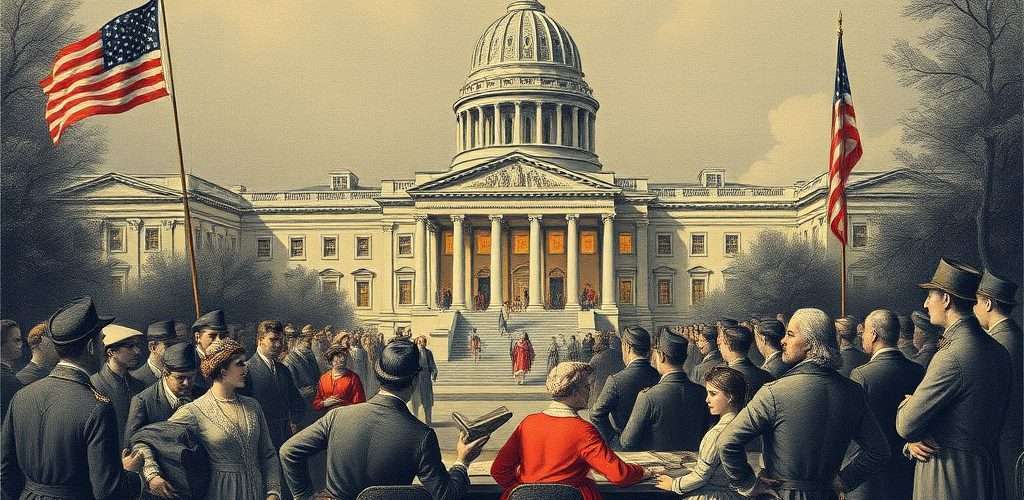Am 11. Juni 1776 ernannte der Kontinentalkongress einen Ausschuss, dem Thomas Jefferson, John Adams, Benjamin Franklin, Roger Sherman und Robert R. Livingston angehörten, um die Unabhängigkeitserklärung zu verfassen. Dieses entscheidende Dokument erklärte die Unabhängigkeit der dreizehn amerikanischen Kolonien von der britischen Herrschaft und legte den Grundstein für die Vereinigten Staaten von Amerika.
Das könnte Sie auch interessieren
Die verborgenen Seitenlinien der Geschichte: Unerwartete Akteure und unwahrscheinliche Ergebnisse
History’s Hidden Sidelines How Did the Great Depression Affect the World? History, as they say, is written by the victors. But what about the losers? What about the bystanders? The quirky coincidences and unforeseen consequences? Textbooks tend to focus on the broad strokes, the major players, and the neat, packaged narratives. But the real fun, the real *humanity* of history, lies in the details – the messy, chaotic, and often hilarious details that are usually swept under the rug. Let’s delve into a few examples, shall we? Forget the grand pronouncements and sweeping generalizations; let’s get down and dirty with some of history’s more unexpected turns. The Case of the Accidental Spy: The Great Molasses Flood January 15, 1919. Boston. You probably associate this date with… nothing. Unless you’re a Bostonian with a morbid fascination for sticky disasters. That’s because on this fateful day, a massive tank containing 2.3 million gallons of molasses...
Was war die tödlichste Pandemie der Geschichte?
Erforschen Sie die tödlichste Pandemie der Geschichte: ihre Ursprünge, ihre verheerenden Auswirkungen und die Art und Weise, wie sie die öffentliche Gesundheit und die Gesellschaft heute beeinflusst.
Die unerwarteten Gäste der Geschichte: Bizarre Geschichten und vergessene Fußabdrücke
History, as they say, is written by the victors. But what about the quirky footnotes, the accidental heroes, the utterly bizarre coincidences that shaped the world as we know it? Textbooks, bless their hearts, often gloss over the messy, hilarious, and downright strange details that make history so compelling. Let’s delve into a few of those overlooked aspects, shall we? The Day the Pope Almost Became a Pirate Picture this: The year is 1530. Pope Clement VII is trapped in Rome, besieged by Emperor Charles V’s troops. His escape route? A daring sea voyage, orchestrated by none other than Andrea Doria, a powerful Genoese admiral. Now, Doria wasn’t exactly a choirboy. He was a seasoned naval commander with a reputation for ruthless efficiency, bordering on piracy. Think of him as the historical equivalent of a swashbuckling mercenary with a penchant for seizing ships. The Pope’s escape was a top secret, nail-biting affair. Imagine the holy father, usually surrounded by...

























Kommentar hinzufügen